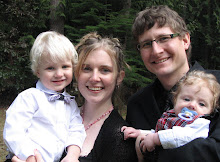What Does it Mean to be Human? part 1
This is the next lecture by Rikk Watts carrying on from the posts below titled 'Why Should God Care Less?' I hope you enjoy these as well:
Ah, a couple of things, just as we commence: Uh, if you want to get some of the information on this material we went through yesterday at a rather rapid clip, it’s on the American Scientific Association Website – so the American Scientific Association. They have a web page and if you get to the main page, I think on the left side there’s a column, on that column they have something like theology/bible, click on that, and about halfway down you’ll see something with my name on it and I think it’s called ‘making sense of Genesis 1.’ Now it’s not a, um, it’s kind of halfway between popular level writing and academic. There is a footnote in there for those of you who are interested about halfway through where I list about 4 or 5 critical books and articles that draw on this Egyptian background. But I would imagine, as far as you’re concerned, most of what you want is in the body of the text.
What I’m going to talk about today you can also get from a book called ‘What Does it Mean to be Saved?’ edited by John Stackhouse. It’s a series of lectures from a Regent conference and mine is the lead article that rejoices in the title of ‘Restoration of the Image.’ Salvation is new creation is exodus or some such thing. So if you want to get some more information on today’s session, at least the first half, you can get it from me. So that’s where to get the info from if you don’t get it all written down and the second thing is: one of the things I say to students who come to Regent is that some point in your education one of your sacred cows is going to have to come under the axe. And of course, we all say ‘We don’t have all the truth’, we all say that readily UNTIL somebody actually touches a point, ha ha, where we disagree and suddenly we DO have the truth and so it becomes and interesting little moment, eh. But, um, at various points we have to decide: are we going to Pentecostal or Christian? Are we going to be Baptist or Christian? And because, um, unless we really do think we’ve got it all together, which none of us thinks we have, then that does mean there are places where we need to reconfigure our thinking. At some point it’s going to have to happen and so we might as well get used to that. So, theological study is not about going around and finding reasons for why I was right all along. Theological study is only to grapple with this stuff and the chances are there are going to be some things I’m going to have to learn. But this should not be a reason for panic, because my faith is not in my theological system. If it was it would be in my ability as Rikk Watts to understand the profound mystery of God. I think that gets very close to idolatry. My faith is not my ability to understand God and if we get to it in the second half of this morning’s session, I think that’s where Greek philosophy took us astray. And unfortunately western theology has often been more captive to that than we realize. No, my faith is in the God who I’m coming to know and they’re two different things. What I know about God is not actually God himself. And what that means is my understanding of God is open to revision; to correction. Right, reformed and never reforming again – no, reformed and always reforming. And we’re always doing that. There are new things to be learned. There are some exciting things that we dig up in the ancient near east; more documents we translate and they give us some ‘aha!’ moments. ‘Oh, so that’s what it means’. We ought not to be afraid of that. It’s just like, you know, you’ve been married to somebody for ten years and then you learn something new about them. You ‘That’s it! We’re divorced! I can’t trust my marriage anymore! Ooo!’ Right? That’d be ridiculous. No, you know the person, you trust them but you learn something new and you adjust your knowledge of them. That doesn’t mean you have to collapse in panic here.
So what I was trying to do yesterday was open up maybe some new things for some of you. Some of you may have heard this material before. But I’d urge you to go back and check out the scriptures. We talk so freely about going to heaven, in fact we sang about it last night. Right, Jesus up there, we’re going to be up there with him. Oh, yeah, it’s a nice idea but is it biblical? And we’re bible people so let’s go back and read our bibles. And it’s pretty clear the book of Revelation says that the New Jerusalem’s doing what? What does it say? What’s the New Jerusalem doing? Let me hear you, what’s it doing? [‘Coming down’] Coming to earth, right? So, are you a bible believing Christian? ‘Yes! But not that bit.’ [laugher] Well, come on, you know. Let’s make our adjustments. If that’s what the scriptures says we should go there. Now I realize for some of us that’s a bit uncomfortable and if it is, it’s worth thinking about why. Because it might just mean that our faith is in our tradition rather than in something else. Now you understand these are not hard and fast, they can’t be neatly divided. Because what I know of God is given to me by my tradition; there’s some kind of overlap there. But, you know, if that’s the way the scriptures go, we should say, ‘Lord, ok, let’s go that way.’ So, you know, obviously if we were doing this personally I’d be a lot more gentle but you’re en-masse here so we’re just going to let it fly, ha ha, right.


No comments:
Post a Comment